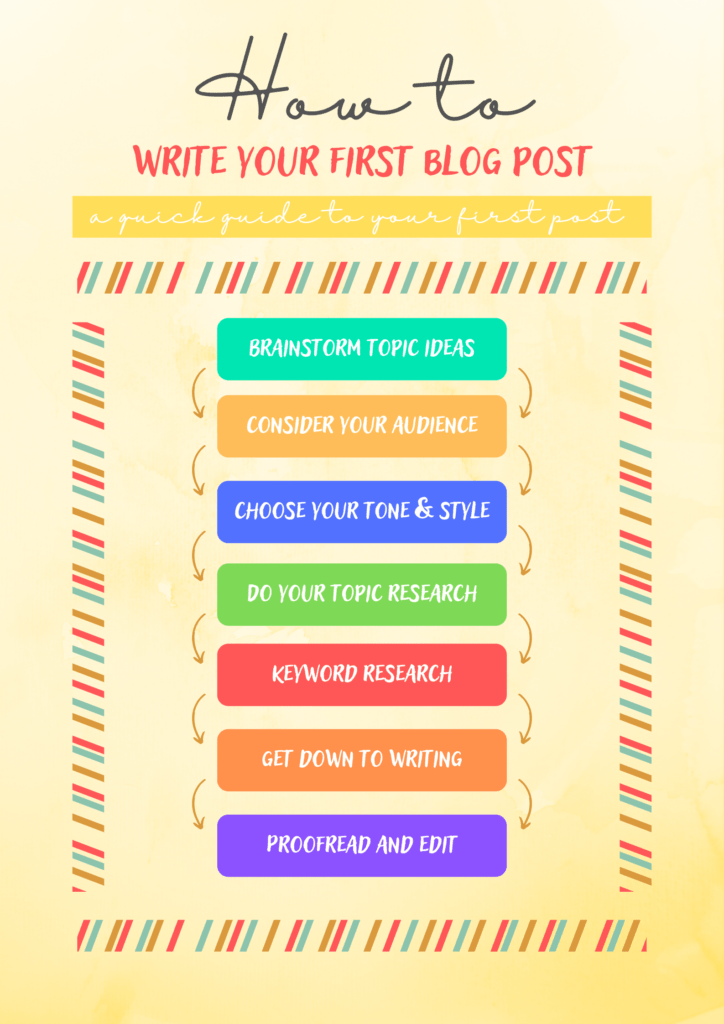Blogging 101: Best Blogging Tools to Grow Your Blog in 2025

A few weeks ago, I made a post on how to start a blog. That was all about starting a blog, what you need to do and so on. So, to continue the series, as a self-help kind of a thing for aspiring or new bloggers, I thought it might be a good idea to talk about blogging tools as well.
After all, if you’re serious about blogging and want to take your blog to the next level, then just posting high-quality content isn’t enough. Things have gotten significantly more competitive; I’ve already talked about it in my posts about AI writing and what not.
But that doesn’t mean you give up any ideas of blogging. If anything, I think now’s a great time for people to start niche specific blogs. Like, really, really niche ones. Back in my uni days, I was super into creating a blog that could act as an online resource/study guide for engineering students. I never got around to it but it would’ve thrived in today’s landscape. I mean, just look at the state of search results right now:
Way too many ads, and irrelevant content. If I’d started that blog way back in 2017, I probably would’ve been on the first page in that particular niche. But that’s life. Who knows, maybe I’d do that someday?
Anyway, back to the topic: You’re going to need the right blogging tools to help you out. Blogging tools offer a wide range of features. From managing and organizing content, such as categorization, tagging, and scheduling options, to analytics and tracking key metrics like website traffic, audience demographics, and engagement levels.
NOTE: This page contains affiliate links. This means that if you make a purchase through my links, I will receive a commission, at no cost to you.
Unleash Your Blog’s Potential: Top Blogging Tools in 2025
Let’s be honest, there are plenty of blogging tools, both free and paid, out there. After all, the market is booming. There are sooo many alternatives for every tool out there, covering various aspects of blogging. But you need to make sure that the tools you’re using help you. Different tools work for different people. For example, I use Hubspot for content and social media management at my job, but personally, I like having a blank slate like Notion to help me plan, create and manage my content calendar.
And that’s the point really: in the end, it comes down to your choice. In this blog post, I thought it might be a good idea to include blogging tools that I either use now, or have used in the past, that cover the different aspects of blogging.
So, without further ado, let’s begin.
1. Best Blogging Tools for Publishing
Namecheap: Perhaps the most important, and perhaps the very first tool you should utilise, even if you’re not really sure what you want to do with your blog yet, is to use Namecheap. Namecheap offers valuable resources for launching your blog. It provides domain registration, and web hosting, specifically designed for WordPress. Also, Namecheap’s customer service is amazing. As returning readers will know, in 2023, this blog was offline for six months. Yes, that happened, and Namecheap’s excellent customer service helped me get my blog back. Even though my IT guy was AWOL.
WordPress: Now, I know a lot of people talk about self-hosting, and while there’s merit to it, as a new blogger, I have to say that I find WordPress awesome. It offers a user-friendly interface, tons of customization options, and a massive plugin library to extend its functionality. From SEO to social media scheduling, WordPress has you covered.
WP Rocket: I’ve always struggled with the technical aspects of my blog, particularly when it comes to things like caching and web performance. Now, WP Rocket is a paid plugin, but it gets the job done. It has features such as lazy loading of images, removing unused CSS, and minification of CSS and JavaScript files. And trust me, you need to make sure that these “technical” aspects of your blog are spot on, or else you might struggle with retaining your audience. With WP Rocket, you can easily increase your site speed without consulting said AWOL IT guy all the time. You can check it out here.
2. Best Blogging Tools for Content Creation & Management
Notion: If you have a full-time job, and struggle to stay organised, Notion’s perfect for you. I tend to use it to organise my life, manage my finances, and even provide research and documentation from my full-time job. Notion helps me plan my blogs and organise them into a timetable. I know there are other more blog-oriented CMS out there but I personally like having everything in one place. Check it out here.
Google Workspace: I have a workspace account for my full-time job, a marketing agency I co-own, this blog and a couple of other things I’m doing. All in all, I have a total of four accounts but that helps me separate the various aspects of my life without creating any unnecessary confusion. Also, I’ve connected my calendar with my Notion calendar and as a result my calendar is a monstrosity. You can see it here:

Yep, that’s what happens when you’re doing a ton of different things at the same time. This is everything I do during the work week. The Notion and Google Workspace duo is fabulous. I can easily embed various spreadsheets, docs and drives in different pages and I’m good to go.
Grammarly: I cannot function without Grammarly. Whether I’m writing an email, a blog or even a short story, I use it to make sure that I get my point across as well as possible. Grammarly scans your text for errors, suggests improvements, and even explains the reasoning behind its suggestions, sharpening your writing skills over time. While there’s a free plan available, if you get the chance, I highly recommend Grammarly Premium.
Hemingway Editor: Hemingway ruthlessly eliminates fluff, making your writing concise and clear. It highlights complex sentences and suggests simpler alternatives, ensuring your message hits home.
3. Best Blogging Tools for SEO & Analytics
Semrush: I think for blogging in particular, Semrush is a very good tool. The “Keyword Magic Tool” allows you to unearth long-tail keywords, assess search volume, and gauge keyword difficulty. It also has a competitive analysis that I use to get my competitors’ top keywords, ranking content, and see if there’s an opportunity I can take advantage of. It also has technical and on-page SEO checkers that can really help keep track of things.
If you’re a beginner in the world of SEO, I would recommend that you check out this blog before you jump into tools. Semrush is very powerful, but you need to know what you’re doing if you hope to rank on Google.
Yoast SEO: This WordPress plugin is a must-have for SEO optimization. While Semrush gets you started, think of Yoast as the last minute check once you’ve written your blog post. Sometimes, I miss things and Yoast helps identify things like having subheadings that are more than 300 words, missing out on the alt text of my images. I like to consult Yoast before I hit publish.
Google Analytics: This one’s a must if you want to see if your SEO efforts were any good. It’s also super important if you depend on social media for traffic. Google Analytics can help you see things like user demographics, and content engagement to understand your audience and tailor your content strategy accordingly. That being said, I have a love-hate relationship with GA-4. I was responsible for setting it up at my day job and it was a nightmare.
Site Kite: Site Kite is a WordPress plugin that allows you to connect Google Analytics and display it on your site’s dashboard. This is especially useful if you have a ton of blogs.
4. Best Blogging Tools for Design

Canva: I guess it’s safe to say that almost every creative on this site, or my pinterest account, has been made on Canva. Now, I know how to use Adobe, but like, Canva’s easier. It’s fast, it’s web-based so I don’t have to worry about puny applications on my ancient computer. If you’re a beginner, or you just don’t feel creative all the time, Canva has a treasure trove of professionally designed templates. Change the text, colours, and layout to perfectly match your vision, all without starting from scratch.
Pexels: If you’re looking for stock photos, Pexels is the right platform for you. It’s incredibly easy to use. Simply type your desired keyword, like “waterfall,” into the search bar. Choose “photo” or “video” from the dropdown menu and hit enter. Voila! You’ll be presented with a vast collection of royalty-free media matching your search.
How to Choose the Right Blogging Tool
Of course, these tools are the ones I use for this blog in particular. Whether you’re blogging for fun, for a business, or to build your audience, the right tools have the ability to propel you into the spotlight. There are plenty of free and premium blogging tools in the market and the best way to distinguish one from the other is by determining what fits best for you.
1. Purpose
The best way to determine what tools you need to use is by defining its purpose. What do you hope to achieve with a particular tool? For photography, for example, Pexels solves the problem of not having the right image. It’s also free so that’s a plus.
2. Budget
Budgeting is really important for bloggers, especially new ones, and you can use it as a factor to determine whether you want to use a particular tool or not. Is there a free version available in the market? If so, perhaps you may want to use that before transitioning for a more premium service.
3. Cross-Platform Functionality
Another important question to ask yourself when choosing a blogging tool is if you can integrate it to your platform. Canva, for example, is really good at this. You can even schedule social posts and make a content calendar there. Notion is basically a one-stop organisational solution where you can see everything. Workspace caters all your Cloud-based needs.
Once you identify which tools work for you, there is no doubt that you’ll have a fully personalised suite of blogging tools that will help you stay organised, create content and get your blog posts out in the world in no time!




One Comment
Lora
Great job compiling this list!